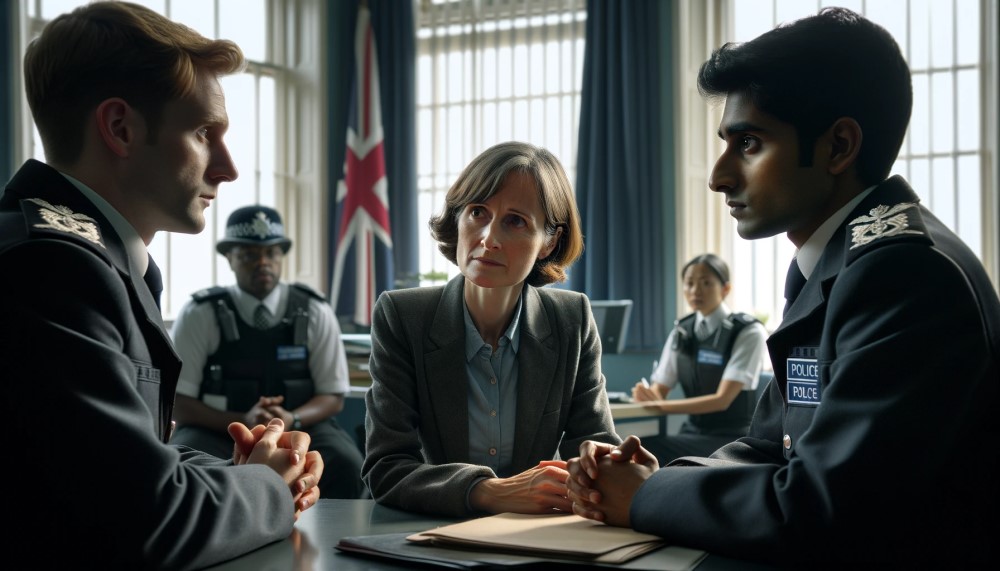Understanding the Process of Dropping Charges in Domestic Violence Cases in the UK
In the UK, domestic violence cases are taken seriously by the legal system. However, there are instances where the complainant may wish to drop the charges against the alleged perpetrator. This article explores the process of dropping charges in domestic violence cases in the UK.
The Role of the Crown Prosecution Service (CPS)

- Decision Authority: In the UK, once a domestic violence case is reported to the police and charges are filed, the decision to proceed with or drop the case lies with the Crown Prosecution Service (CPS), not the complainant.
- CPS Assessment: The CPS assesses the case based on the evidence and public interest factors, rather than solely on the complainant’s wishes.
Reasons for Wanting to Drop Charges
- Reconciliation: Sometimes, the complainant may reconcile with the accused and no longer wishes to pursue legal action.
- Fear or Intimidation: In some cases, complainants may feel intimidated or pressured into dropping charges.
- Personal Reasons: There could be various personal reasons, including emotional stress, family dynamics, or financial dependence.
The Process of Dropping Charges

- Informing the Police: If you decide you no longer wish to pursue charges, the first step is to inform the police handling your case.
- Impact Statement: You may be asked to provide a statement explaining your reasons for wanting to drop the charges.
- CPS Review: The CPS will review your request alongside all available evidence, including any new statement you provide. They will then decide whether to continue with the prosecution.
Considerations in Dropping Charges
- Public Interest: In domestic violence cases, the CPS often proceeds with the prosecution even if the complainant wishes to withdraw, especially if there is a risk of further harm.
- Safety and Protection: The primary concern is the safety and protection of the complainant and any other potential victims.
- Evidence-Based Prosecution: The CPS can proceed with the case based on evidence, even without the complainant’s testimony, if the evidence is strong enough.
The Role of Support Services

- Seeking Advice: Before deciding to drop charges, it’s crucial to seek advice from domestic violence support services or legal counsel.
- Confidential Support: Support services provide confidential advice and support, considering the complexities and sensitivities involved in domestic violence cases.
- Safety Planning: These services also assist in safety planning and provide resources for dealing with domestic violence situations.
Conclusion: Navigating the Process of Dropping Charges in Domestic Violence Cases in the UK

In domestic violence cases in the UK, the decision to drop charges is not solely in the hands of the complainant. The CPS plays a central role in this decision, taking into account the broader implications for public safety and the risk of further harm.
Complainants wishing to drop charges should seek advice and understand the legal process and implications of their decision. The priority is always the safety and well-being of those involved, and support services play a crucial role in providing the necessary guidance and assistance.
Thank you for reading this post, don't forget to subscribe!
Notice: Informational Content Disclaimer
The content provided on this website, including articles, blog posts, and other informational materials, is intended for general informational purposes only. It is not intended as, and should not be considered, legal advice.
Visitors to this website should be aware that the information presented here is not a substitute for seeking legal advice from a qualified solicitor or legal professional. Each individual's legal situation is unique, and the information provided may not be applicable to specific circumstances.
If you require legal advice or have specific legal questions, we encourage you to contact us directly. Our experienced team of solicitors is here to assist you with your legal needs and provide tailored advice to address your concerns.
Please be advised that any communication through this website, including the use of contact forms or email, does not create a solicitor-client relationship. Confidential or time-sensitive information should not be sent through this website. To establish a solicitor-client relationship and discuss your legal matters in detail, please contact us for a consultation.
We strive to provide accurate and up-to-date information, but we make no representations or warranties regarding the accuracy, completeness, or suitability of the information contained on this website. We shall not be liable for any reliance placed on the information provided herein.
Thank you for visiting our website. We look forward to the opportunity to assist you with your legal needs.




